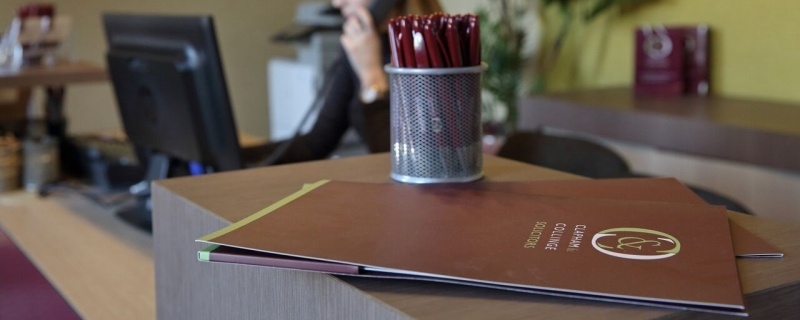Common Questions - Making A Will

Q. How long does will writing take? Is it a lengthy process?
Will writing does not need to be a lengthy process at all. After the first appointment, initial draft Wills are usually sent to our clients within ten working days. Naturally, more complex Wills take longer to prepare, but once the client is happy with their draft Will, an appointment can be arranged for the Will to be signed and witnessed.
Q. Is there anything I shouldn't include in my will?
The main purpose of a Will is to divide your assets in accordance with your wishes. It is not advisable to include reasons for divisions or a long list of personal possessions in a Will. It is important to remember that a Will can become a public document upon death and that your personal possessions may change over time. We advise all our clients to provide explanations, details of personal possessions & any other non-binding issues in a Letter of Wishes to be stored with the Will, which is confidential to your Executors.
Q. Does my Executor need to be involved with the Will writing process?
No, your Will is your own private document. Some people choose to tell their Executors that they have been appointed & may also inform them of practical information such as who they bank with and funeral wishes. Others choose to detail this information in a letter stored with their Will.
Q. What happens if my Will is out of date for some details? E.g. guardianship of children that have grown up.
A guardianship provision which relates to grown-up children should not affect the overall validity of a Will, but it is best to check your Will with a solicitor. We always advise our clients to do a full review of their Will every 5 years or after a life changing event such as the death of family member or a relationship breakdown. It is also important to note that a Will is revoked by marriage. If you are worried that your Will is out of date or needs amending, it is advisable to see a solicitor.
Q. Why should I use a solicitor for my Will rather than doing a DIY will?
Many DIY Wills do not contain all of the provisions and powers Executor's need in order to administer a person's estate effectively. This can leave your Executors in a very difficult position. Legal professionals have undergone specialist training on the latest laws and interpretations of Wills in order to ensure the clients' wishes are adequately portrayed in their Will. Many clients also benefit from specialist trust and tax planning advice from solicitors which can help protect assets for many years to come.
A recent report from the Solicitors for the Elderly has focused on the risks of DIY Lasting Powers of Attorneys and Wills. Read our news article reviewing 'What are the risks of DIY Lasting Power of Attorney's and Wills?'
Q. For someone who has no living relatives or is estranged from their family, what are the main things to consider when writing a will?
In your Will you don't have to benefit only family. You can choose to benefit your friends, charity and there has been cases where people have left money to their local Chinese takeaway. It is important to think about who you would like to benefit from your estate, who may have helped you out over the years, or charities who you have a close connection to or admire their work.
Q. Who can be appointed as executor of the will if there are no family members to appoint?
You are able to appoint friends as executors if you do not have any family members who would be appropriate. Alternatively, you can appoint a firm of solicitors, or the Partners of the firm at the date of your death. This means you can rest assured that your estate will be correctly administered when you pass away.
Q. How can a solicitor help someone who has no family plan their future care?
At Clapham & Collinge our solicitors are experienced in elderly care and so can not only provide advice regarding the contents of your will but also assist in providing advice on your wishes long term care, even if you are not at that stage yet. Solicitors can provide the necessary advice but also get in touch with IFAs, care companies, befrienders, social workers and the local authority to collate all the relevant information and tailor advice.
Q. What is an Inheritance Act Clause and how does it work?
An Inheritance Act clause is a clause which says that a beneficiaries entitlement under your estate is conditional on them not making a claim against the estate. It is a clause which is included in the hope that the beneficiary will think twice before alleging that reasonable financial provision has not been made and bringing a claim under the Inheritance (Provisions for Family and Dependents) Act 1975, as they may risk their entitlement under the will. The clause however cannot prevent a claim being made so some beneficiaries may still be willing to take that risk.
Q. What advice would you give to someone who is estranged from or has no family when it comes to writing a will?
Part of the process of making a will is to consider claims estranged family may have on your estate under the Inheritance (Provisions for Family and Dependents) Act 1975. Certain categories of people (e.g. ex-spouses, children) are able to make a claim against your estate if they do not feel they have received reasonable financial provision. When making a will you should consider the reasons for excluding. Your solicitor can record the reasons in contemporaneous file notes, which then will serve as evidence should they make a claim. You can also leave a letter enclosed with your will outlining the reasons. The court will take such evidence into account if a claim is made.
Q. How does getting married or entering into a civil partnership affect your will?
Marriage/civil partnership will revoke (cancel) your existing Will unless you have included a contemplation of marriage clause. Therefore, as part of your marriage/civil partnership preparations you must make a new Will to control who is to inherit from your estate on your death.
Q. What are the intestacy rules and how do they work?
If someone dies without leaving a valid Will, their Estate is distributed in accordance with the rules of intestacy. These rules provide that particular family members will inherit your assets on your death, in a particular order. The intestacy rules are not suitable for the majority of people to rely on and therefore it is important to make a Will to ensure that your wishes and feelings are taken into account on your death.
Q. What does it mean to make a will 'in contemplation of marriage'?
This is an exception to the rule that your Will will automatically be revoked on marriage/civil partnership. Including a contemplation of marriage clause will ensure your Will is both valid before and after your marriage to a particular person.
Q. How can a solicitor help couples to make a will?
Solicitors can assist in helping to identify what type of Will would be most suitable for you both based on your individual circumstances and then drafting the bespoke Wills for each of you. A solicitor can also help to identify important issues that you would not have considered previously and help to ensure that your succession plans are in line with your wishes and feelings.
To find out more or discuss your individual requirements in further detail, our dedicated Wills, Trusts and Probate solicitors will be delighted to help. Contact us today on 01603 693500 or email us using the 'Make an enquiry' form. Appointments available at our Norwich, North Walsham and Sheringham offices.

